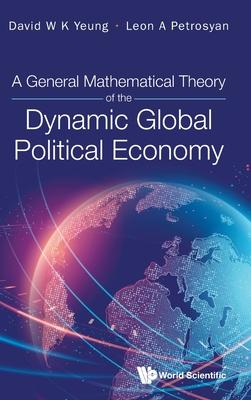William Jevons (1866 and 1871) established a ground-breaking milestone with "A General Mathematical Theory of Political Economy" for economic analysis. Jevons' work was praised as the start of the mathematical method in the discipline of economics, which is inherently a subject involved with mathematics and quantities. This book focuses on the most fast-evolving and encompassing area in political economy - the dynamic global political economy. Under the high level of globalization currently, intertemporal and cross-boundary interactive elements are present in political-economic encounters. Indeed, almost all studies in the political economy may fall into the study of dynamic global political economy. Since the world has changed significantly, new mathematics developed by the authors of this book is used to formulate a general mathematical theory for the dynamic global political economy nowadays. A distinctive feature of the current book is that it combines advanced mathematics, game-theoretic concepts, and economics to develop a general mathematical theory supporting the study of the dynamic global political economy.
The book covers mathematical theory for different areas of the dynamic global political economy. In addition, it explicates the application of the mathematical theory in real-world scenarios, including (i) environmental degradation under an uncoordinated interaction scenario, (ii) global climate accords with collaboration and cooperation, (iii) trade network involving the Belt-Road Initiative (BRI) and Build Back Better World (B3W) Initiative, and (iv) random termination of international joint ventures.
